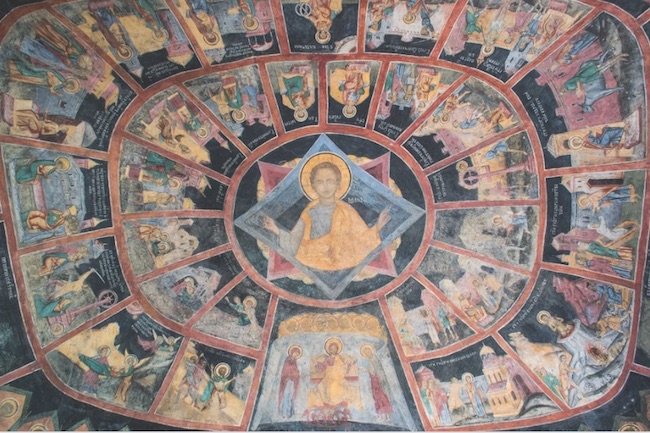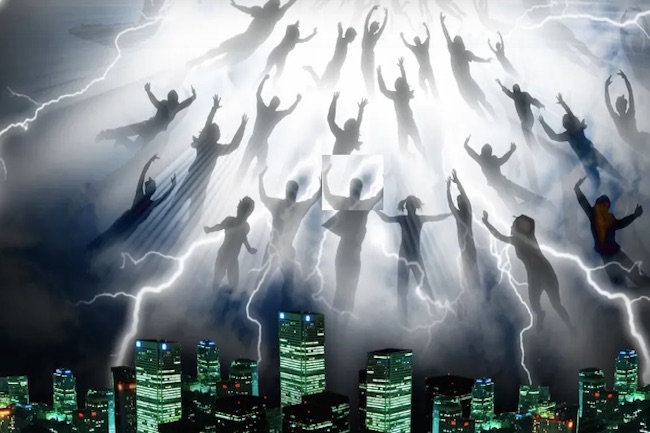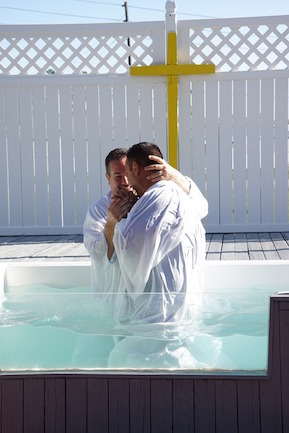Jesus Was Forsaken So We Can Be Accepted BY William Boekestein for Core Christianity
“Now from the sixth hour there was darkness over all the land until the ninth hour. And about the ninth hour Jesus cried out with a loud voice, saying, ‘Eli, Eli, lema sabachthani?’ that is, ‘My God, my God, why have you forsaken me?’ And some of the bystanders, hearing it, said, ‘This man is calling Elijah.’ And one of them at once ran and took a sponge, filled it with sour wine, and put it on a reed and gave it to him to drink. But the others said, ‘Wait, let us see whether Elijah will come to save him.’”
When Martin Luther once studied this passage, “He continued for a long time without food, and sat wide awake but as motionless as a corpse.” Finally, he cried out, “God forsaken of God! Who can understand it!”[i]Jesus’s cry of God-forsakenness—though hard to understand—offers rich comfort for those who look to Christ for acceptance.
Christ Forsaken in Darkness
During Jesus’s crucifixion, at what should have been the brightest part of the day, “The sun’s light failed” (Luke 23:45). God judges through darkness. The ninth plague against Egypt so darkened the land that the people “did not see one another, nor did anyone rise from his place for three days” (Ex. 10:21-23). It was as if Egypt’s moral shadiness became palpable as a sign of God’s displeasure against them. In the same way, through the darkness at Calvary, God announced his hatred of sin.
But Jesus was in that darkness. He described hell as “the outer darkness” (Matt. 25:30). When John saw an angel open the bottomless pit, smoke belched out and darkened the sun (Rev. 9:2). God wants us to know that “Hell came to Calvary that day, and the Savior descended into it and bore its horrors in our stead.”[ii] God turned his radiant face away from Jerusalem, where the curse-bearer hung, and darkness reigned (Luke 23:53).
Support Our Site

Now is your chance to support Gospel News Network.
We love helping others and believe that’s one of the reasons we are chosen as Ambassadors of the Kingdom, to serve God’s children. We look to the Greatest Commandment as our Powering force.
From a place of eerie, disorienting blackness, from the deepest night of the soul, Christ cried out: “My God, you’ve totally abandoned me. Why would you do that?” Under incredible duress, the Son lost sight of the Father’s abiding love, the way airplane pilots have crashed simply because darkness obliterated their sense of vertical orientation. From all appearances, Jesus had become overmatched and outwitted by his opponents, rejected by his God and Father. “The Father had really withdrawn Himself from His inward consciousness,”[iii]and in the capacity of sin-bearer, Jesus was truly forsaken. He cried out in anguish.
Mockers answered him (Matt. 27:47-49). Whether out of misunderstanding or malice, the bystanders suggested that Jesus cried out for rescue, not to his God, but to Elijah. The man who claimed to be God’s beloved Son should seek help from a long-dead prophet? How pathetic. Even Jesus’s cry of dereliction added to his humiliation. Why is this happening?
Christ is not on the cross for his own sake but for those he came to save. He is for those forsaken in darkness.




